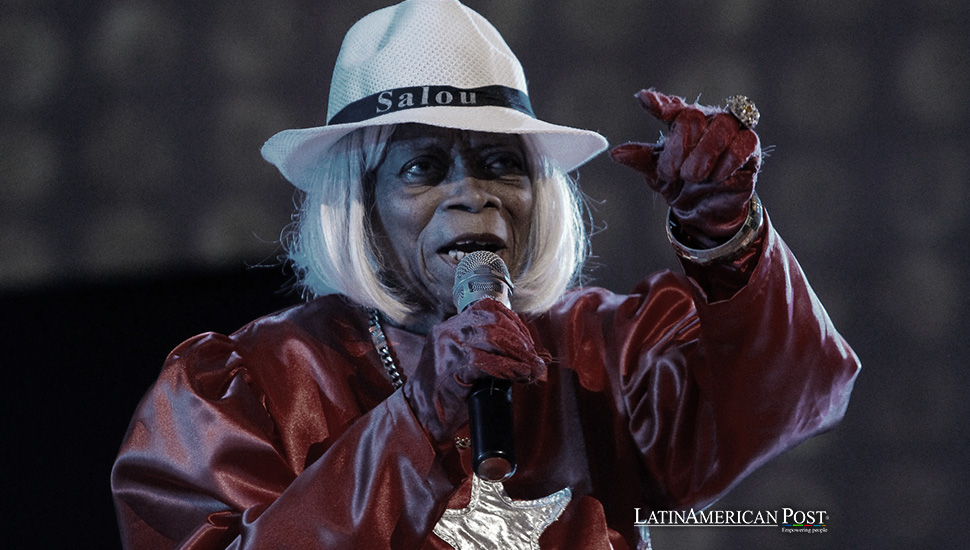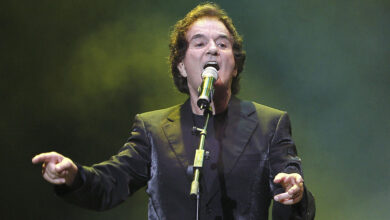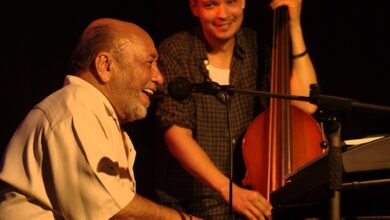The Enduring Legacy of Cuba’s Charismatic Queen of Cabaret Juana Bacallao

Cuba mourns the loss of Juana Bacallao, a dazzling beacon of Cuban music and humor, who passed away at 98 in Havana. Her seven-decade career spanned lounges, TV, and theater, marking an era of unparalleled showmanship and cultural vibrancy.
A Cuban Icon’s Journey Begins
The vibrant heart of Cuban entertainment, Juana Bacallao, passed away this Saturday at 98 in a Havana hospital, leaving behind a legacy that spanned over seven decades. Born Neris Amelia Martínez Salazar in Havana in 1925, Bacallao was a dynamo of talent and charisma whose journey from a humble beginning to a towering figure in Cuban entertainment is a testament to her indomitable spirit and unparalleled skill.
Juana Bacallao, affectionately known as Juana la Cubana or Juana de Cuba, embarked on her artistic voyage under serendipitous circumstances. Discovered in the late 1940s by musician Obdulio Morales while she was singing and cleaning stairs as a domestic worker, Bacallao’s life was transformed. This chance encounter unveiled her spectacular showmanship, marking the beginning of an illustrious career that would captivate audiences across lounges, television, and theater.
Her rise to fame was not merely a personal triumph but a cultural phenomenon that mirrored Cuba’s vibrant and tumultuous history. From the pre-revolutionary heydays, when Havana’s nightlife was the epitome of glamour and decadence, through the revolutionary era that saw a dramatic transformation in the island’s social and cultural landscape, Bacallao remained a constant, a bridge between worlds.
The Queen of Cuban Cabaret
Juana Bacallao’s name became synonymous with Cuban cabaret, sharing stages with legendary figures such as Benny Moré, Bola de Nieve, Meme Solís, Rita Montaner, Celia Cruz, Celeste Mendoza, Omara Portuondo, Elena Burque, and even international stars like Nat King Cole. Her performances, characterized by a unique blend of humor, audacity, and flamboyance, captured the essence of Cuban spirit and identity.
Despite her rise to stardom, Bacallao’s journey lacks. The Cuban Revolution 1959 marked a turning point in the nation’s history, reshaping its cultural landscape. Amidst these changes, Bacallao’s artistry remained unflinching, a testament to her resilience and adaptability. Her ability to navigate the shifting tides of political and social change while maintaining her artistic integrity endeared her even more to the Cuban people and the international community.
As the years progressed, Juana Bacallao became more than just a performer; she embodied the soul of Cuban music and culture. Her stage presence, with extravagant costumes, vibrant makeup, and infectious energy, left an indelible mark on all who witnessed her performances. However, by the end of 2019, Bacallao began to withdraw from her nocturnal engagements, and the onset of the COVID-19 pandemic in 2020 marked the end of her public appearances, a poignant close to the chapter of a woman who had become an icon of Cuban entertainment.
In recognition of her contributions to Cuban humor and entertainment, Bacallao was awarded the National Humor Prize in 2020. This accolade was a fitting tribute to a woman whose life and career celebrated Cuban identity, resilience, and joy. Her performances transcended entertainment, offering a glimpse into the soul of a nation that has navigated its complex history with strength and humor.
Also read: “Jazz Plaza 2024” is A Global Celebration of Jazz in Cuba
Juana Bacallao’s passing marks the end of an era, but her legacy is immortal. She leaves a legacy that will continue to inspire generations, embodying the spirit of Cuban culture and the transformative power of art. As Cuba and the world mourn her loss, they also celebrate the life of a woman who brought light, laughter, and music to countless hearts, reminding us of the power of perseverance, talent, and the enduring impact of cultural icons.




